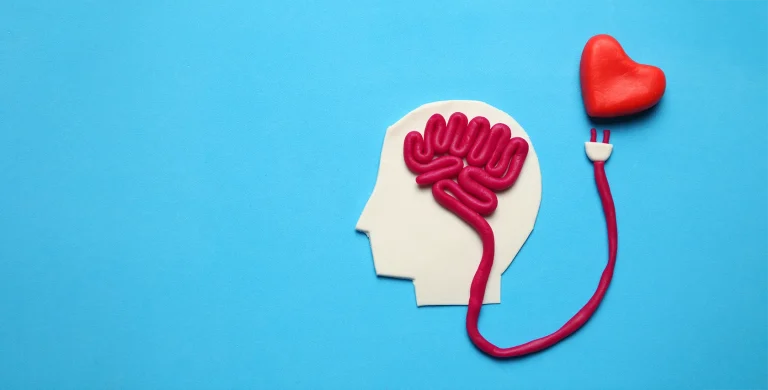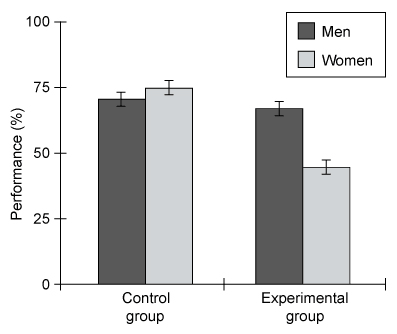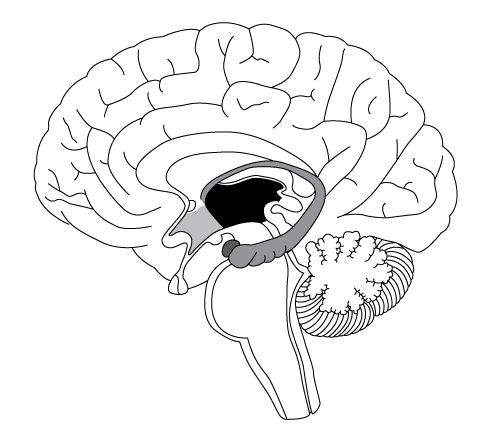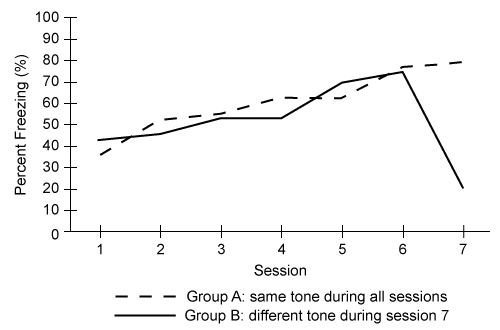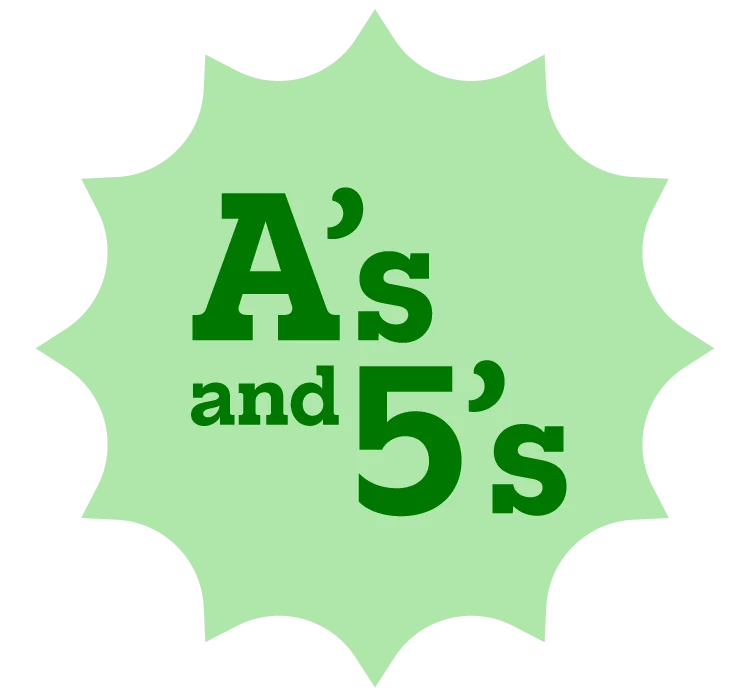The AP Psychology MCQ section is worth 66.7% of your score and consists of 75 questions, each with 4 answer choices. You’ll encounter these 6 types of MCQs on the exam:
- Concept Application Questions
- Data Analysis Questions
- Research Methodology Questions
- Stimulus-Based Questions
- Visual/Graph Interpretation Questions
- Standalone Concept Recall Questions
Our AP Psych QBank offers hundreds of inquiries that mimic these 6 question types. Each requires a different strategy to guide you to the correct answer. Here are some example questions and tips on how to answer them confidently.
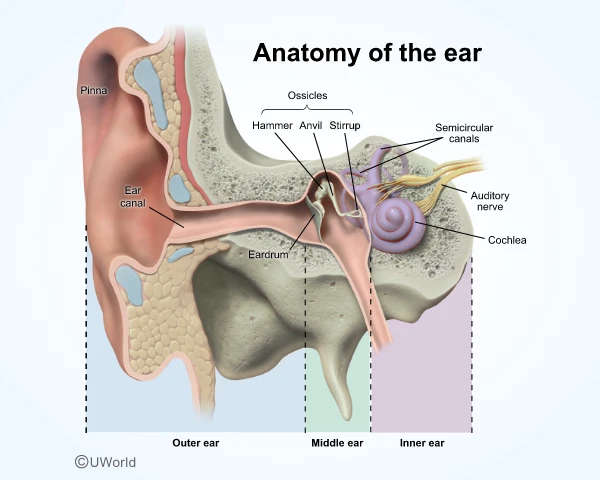
Concept Application Questions
Apply psychological concepts to real-life or experimental scenarios. These questions test your ability to recognize how theories, terms, and ideas show up in practical situations.
MCQ Example 1
In Hans Selye's general adaptation syndrome, which of the following is the stage that occurs when prolonged stress depletes energy and causes the body to be more vulnerable to illness?
- Alarm
- Exhaustion
- Resistance
- Tend-and-befriend
To successfully answer this question, you must understand the stages of Hans Selye's general adaptation syndrome and identify which stage involves long-term stress leading to reduced resistance to illness. This question tests your ability to apply a psychological theory to a health-related outcome.
Data Analysis Questions
Interpret tables, charts, or research data to draw conclusions. You'll use data to support claims, spot trends, or evaluate results.
MCQ Example 2
In an experiment, two groups of participants were given the same test. The control group was told that the test assesses memory function. The experimental group was told that the test assesses gender differences in spatial intelligence. The experimenter said to the experimental group subjects, "Women perform poorly on spatial intelligence tests." The data shown above illustrate which psychological concept?
- Intrapersonal intelligence
- Crystallized intelligence
- The Flynn Effect
- Stereotype threat
- The social desirability bias
You must analyze the experimental setup and understand how participants' performance might be influenced by expectations or social messages. This question tests your ability to interpret data and apply psychological concepts related to cognition, bias, or group identity.

Research Methodology Questions
Identify parts of an experiment, such as independent/dependent variables, control groups, and ethical concerns. These questions assess your understanding of scientific design.
MCQ Example 3
When treating a client for specific phobia, Dr. Gilligan uses an effective, common treatment that pairs relaxation with increasingly distressing stimuli. Which of the following techniques is Dr. Gilligan using?
- Reflective listening
- Systematic desensitization
- Flooding
- Free association
- Aversive conditioning
You must understand different therapeutic techniques and be able to identify which one involves gradually exposing a client to anxiety-inducing stimuli while using relaxation methods. This question tests your knowledge of treatment methods and their application in clinical psychology.
Stimulus-Based Questions
Read a short passage or scenario (often research-based) and apply psychological terms or evaluate outcomes. These questions combine reading comprehension with content knowledge.
MCQ Example 4
Which of the following systems is represented in the drawing above?
- The peripheral nervous system
- The somatic nervous system
- The limbic system
- The reticular activating system
- The immune system
MCQ Example 5
What is the primary function of the system represented in the drawing above?
- Language comprehension
- Coordinating emotion, memory, and motivation
- Regulating sleep, wakefulness, and dreams
- The production of speech
- Controlling breathing and heart rate
You must recognize the visual features of a major brain system and understand its associated psychological functions. Together, these questions test your ability to interpret diagrams, recall brain anatomy, and apply knowledge of how brain structures influence behavior and mental processes.
Visual/Graph Interpretation Questions
Analyze graphs or visual stimuli to make inferences about psychological research or trends. You’ll need to draw logical conclusions based on visual information.
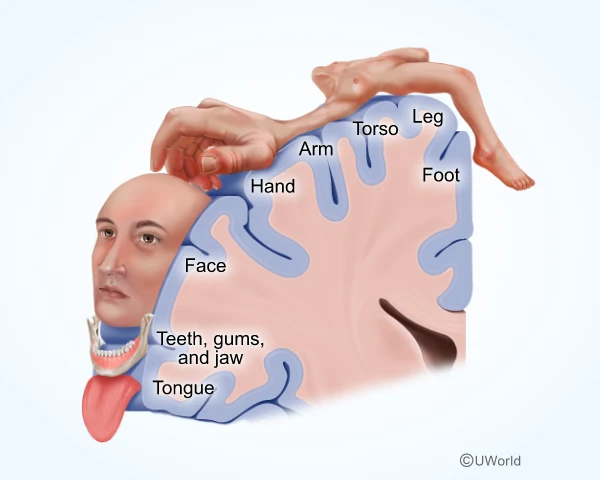
Standalone Concept Recall Questions
Direct questions that test your knowledge of definitions, vocabulary, or psychological theories. These require quick recall and strong foundational understanding.
MCQ Example 7
A research group conducted a study on mice that were classically conditioned to associate a tone with an electric shock. The mice learned that a tone preceded a shock and began to freeze when they heard the tone. Group A was presented the same tone during all seven sessions. Group B was presented the same tone in the first six sessions, but during session seven, they were presented a different tone that sounded similar to the original tone. According to the graph above, group B illustrated which of the following in the seventh trial?
- Stimulus generalization
- Latent learning
- Habituation
- Counterconditioning
- Stimulus discrimination
You must recall key terms from classical conditioning and identify how a change in the stimulus affects learned responses. This question tests your foundational understanding of learning concepts and your ability to connect terminology with experimental outcomes.
Tips to Approach the AP Psychology Exam Multiple-Choice Questions
Before answering any question, carefully read it, note key information, and mentally review what you know about the topic.
Depending on the question type, here are some specific strategies to keep in mind:
Focus on identifying the psychological concept at play in real-life or research-based examples. Break the scenario down into familiar terms and match it to theories or vocabulary you’ve studied.
Carefully examine tables, charts, or study results. Pay attention to trends, group comparisons, and variable labels to draw accurate conclusions supported by the data.
Look for clues about the structure of the study — who did what, to whom, and under what conditions. Identify the variables, control measures, and any techniques used, keeping key research terms in mind.
Read the full passage or scenario before jumping to the answers. These questions test comprehension and application, so take note of psychological processes or outcomes described.
Start by reading titles, axis labels, legends, and units. Then connect the visual data to what you know about research trends, experimental results, or correlations in psychology.
Use quick recall of definitions, processes, and theories. These questions are direct and test your foundational psychology knowledge, so trust your memory and eliminate distractors efficiently.
How Can I Practice AP Psychology Multiple-Choice Questions?
The key to excelling on the AP Psychology exam lies in preparation. You can practice AP Psych MCQs on the UWorld AP Psychology question bank. For more comprehensive prep, check out our AP Psychology Online Course, designed to walk you through each unit with engaging visuals, practice drills, and spaced repetition for long-term retention.
Prefer to study offline or alongside classwork? Our AP Psychology Study Guide available in digital and print format is packed with key summaries, practice questions, and guided notes to reinforce every topic.
Frequently Asked Questions
How many multiple-choice questions are on the AP Psych exam?
How are AP Psych multiple-choice questions graded?
How long is the multiple-choice question section of the AP Psychology exam?
Where can I get multiple-choice questions from past AP Psychology exams?
References
- AP Psychology. (n.d.). Collegeboard.org. Retrieved April 01, 2025, from https://apcentral.collegeboard.org/courses/ap-psychology
- AP Psychology Course and Exam Description. (2024). Collegeboard.org. Retrieved April 01, 2025, from https://apcentral.collegeboard.org/media/pdf/ap-psychology-course-and-exam-description.pdf
Read More About AP Psychology
How to Answer AP Psychology FRQsProviding concise and thorough responses to FRQs can be challenging. Click here for a step-by-step guide to answering AP Psychology FRQs effectively.
How to Study for AP PsychologyGet into your dream school with the help of UWorld. We are sharing all our AP Psychology tips, tricks, and resources to help you succeed on the exam.
AP Psychology Exam FormatUnderstand the AP Psychology exam format—including question types, section timing, and scoring—to start your test prep with clarity and confidence.
Best AP Psychology Prep Course ReviewDiscover the best AP Psychology prep courses! This in-depth review helps you compare options and pick the course that meets your needs.
Best AP Psychology Study Guide ComparisonKaplan vs. Barron's vs. Princeton Review vs. UWorld—compare strategies, features, and effectiveness to find the ultimate guide for AP Psychology success.
How to Self-Study for AP PsychologyLearn how to self-study for AP Psychology like a pro! Follow this comprehensive plan filled with tips, tools, and resources for success.
